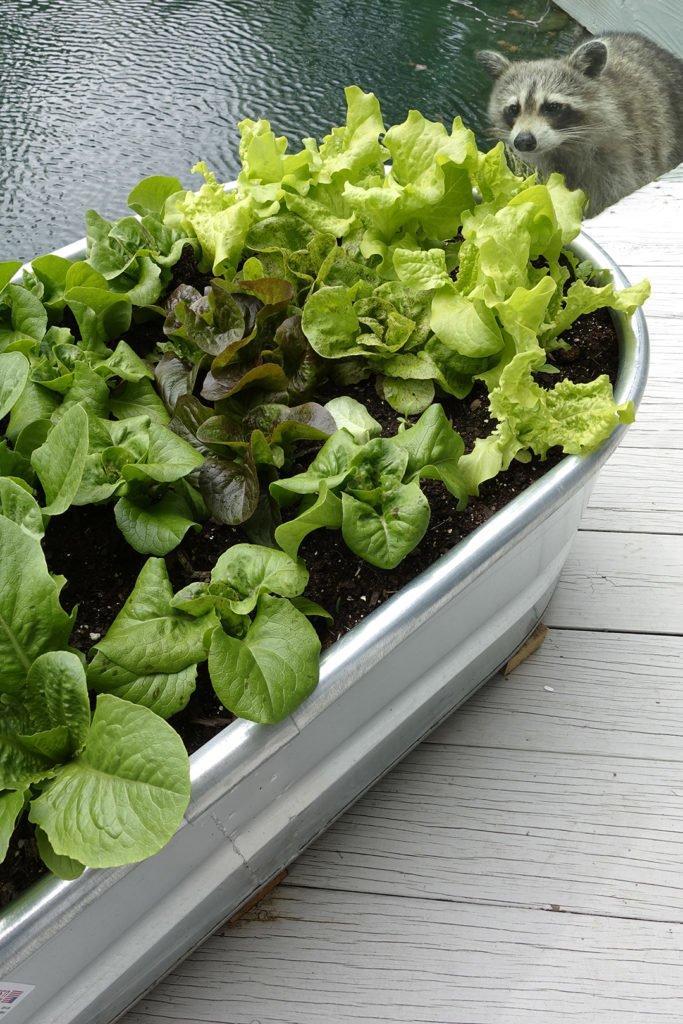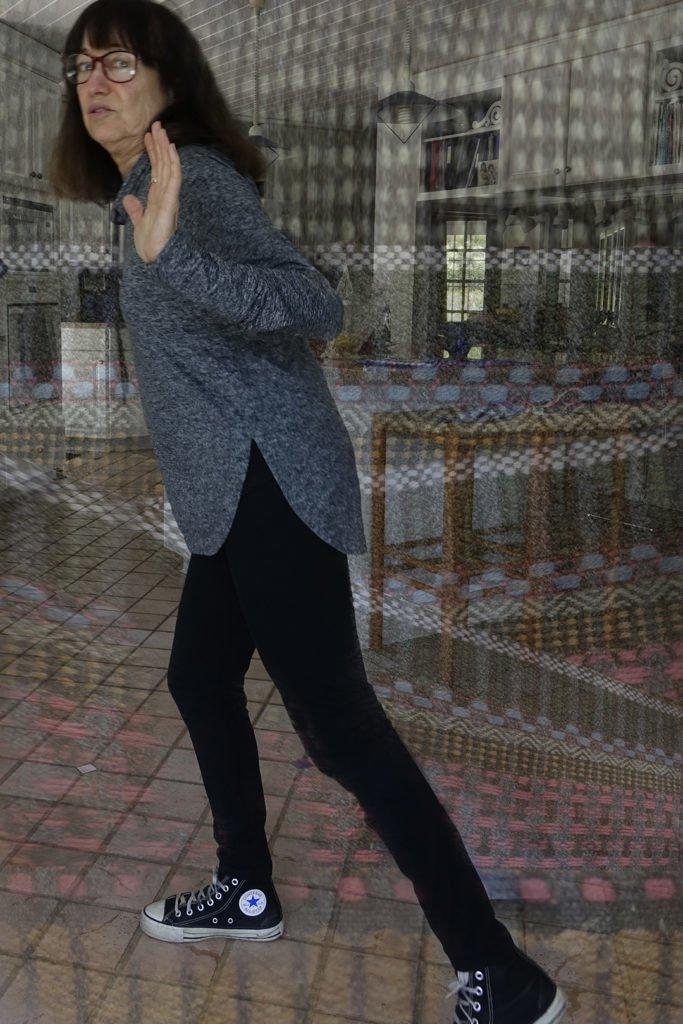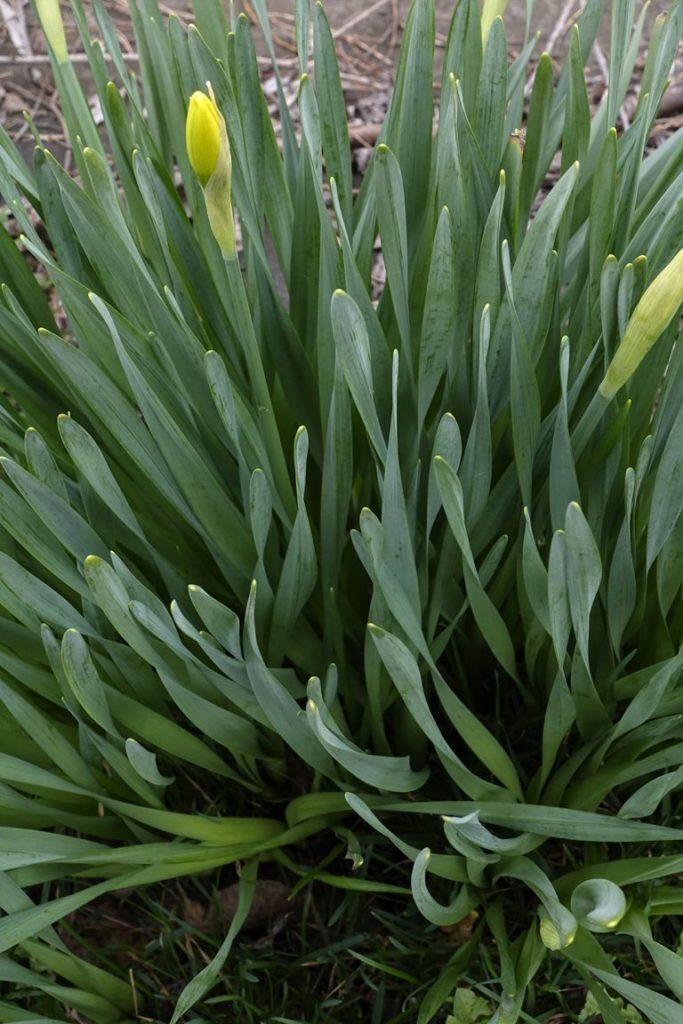 Barking, yipping, screaming, the dog and I defended the new vegetable garden against a ransacking raccoon, for as long as we could. I banged and kicked the sliding glass door mightily as the little dog went ballistic by my feet, and the ‘coon retreated to its place under the deck, but not for long. It popped out every so often, eyeing the garden, and then I’d storm outside, stomping, roaring, waving my arms frantically, leaving the dog to carry on hollering inside. This continued for most of the holiday weekend. Which is why I didn’t finish writing my blog about healing with fresh lettuce.
Barking, yipping, screaming, the dog and I defended the new vegetable garden against a ransacking raccoon, for as long as we could. I banged and kicked the sliding glass door mightily as the little dog went ballistic by my feet, and the ‘coon retreated to its place under the deck, but not for long. It popped out every so often, eyeing the garden, and then I’d storm outside, stomping, roaring, waving my arms frantically, leaving the dog to carry on hollering inside. This continued for most of the holiday weekend. Which is why I didn’t finish writing my blog about healing with fresh lettuce.
It was my first vegetable garden. A container garden. My friend had planted a galvanized steel bucket and two horse-sized water troughs full to their brims with kale, six different types of lettuces, spinach, basil, various herbs, and one tomato plant that’s supposed to yield a hundred cherry tomatoes. We built it on my deck, to be close and easy to manage.
It turns out the area under and around my deck is prime real estate for woodchucks, fox, raccoons, skunks, and muskrats. They take turns each year fighting for their nesting spots. They usually avoid the shallow boardwalk, lined with large windows and doors, that cantilevers over the pond. The perfect place for my salad garden, I thought. Until the first day. Right off, one of the resident woodchucks devoured most of the single cilantro seedling. I should have realized then this would be like inviting a whole kingdom of wild creatures for a free smorgasbord.
If my son were home he’d shoot every critter. Friends offered to help trap the offending beasts and carry them off far away. But I’m convinced the raccoon is a mother with babies. After all I’ve been through, how could I shoot or separate a mother with babies?
So I’m camping out by the garden. A lot. With camera, my book (Margaret Atwood’s A Handmaid’s Tale), pacifying mugs of hot mocha with Kahlua, and a water-hose. The dog, now sleeping exhausted on the other side of the sliding door, takes turns with me (from inside) guarding our healing herbs and lettuces. But we are ready to quit. Life’s too short to be picky over who gets to pick the vegetables. And we’re learning to pick our battles. Time to go hiking instead.
What did you lose over the long weekend? What do you favor – baby lettuce or baby raccoons?
Please Share on your Social Media




